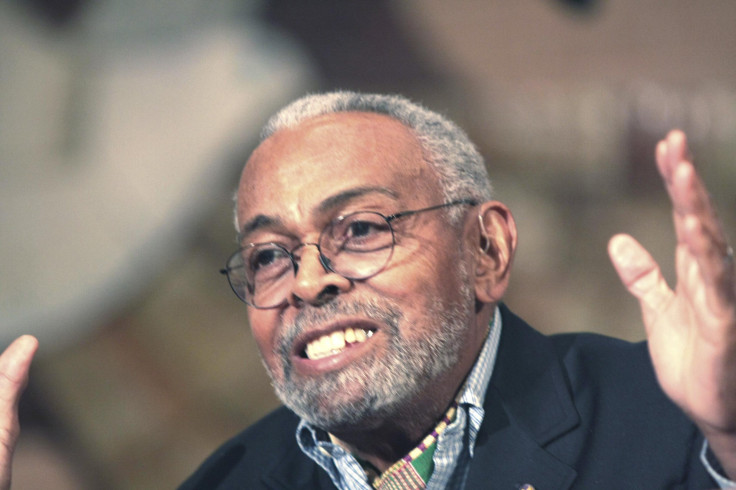Amiri Baraka, Writer-Activist, Dies At 79

Amiri Baraka, the poet, playwright and African-American activist, died Thursday in Newark, N.J., at age 79, his family confirmed.
A former poet laureate of New Jersey and influential political figure in Newark, Baraka had been hospitalized since last month, The Star-Ledger reported. He had long struggled with diabetes, but the immediate cause of death was not clear.
Born Everett LeRoi Jones in Newark, he graduated from high school two years early and went to college at New York University and Howard University. After serving in the Air Force, he was dishonorably discharged for reading Communist texts, The Los Angeles Times reported
Jones moved to New York, attending graduate school at Columbia University and becoming involved in the Beat scene. In 1958, he founded the avant-garde poetry magazine Yugen, which he co-edited with Hettie Cohen -- his wife from 1960 to 1965. Yugen published such writers as William S. Burroughs, Allen Ginsberg, Jack Kerouac, John Ashbery, Frank O'Hara, and William Carlos Williams.
Jones also co-edited a literary newsletter, The Floating Bear, published "Blues People: The Negro Experience in White America and the Music That Developed from It" (1963) and penned the play "Dutchman," which explosively explored issues of race and gender.
After the 1965 assassination of Malcolm X, Jones changed his name to Imamu Amiri Baraka, moved to Harlem and married his second wife, Amina (formerly Sylvia Robinson).
Baraka turned to black nationalism, founded the Black Arts Repertory Theatre and School and led the Black Arts Movement, an aesthetic ally of the Black Panthers. The brief movement involved authors such as Gwendolyn Brooks, Eldridge Cleaver, Gil-Scott Heron, Nikki Giovanni, Ishmael Reed and Quincy Troupe.
Baraka's work during the 1960s included the plays "The Black Mass," "The Toilet," and "The Slave"; the poetry collections "Black Art" and "Black Magic"; and the provocative collection "Home: Social Essays."
In the late 1960s and into the 1970s, Baraka became involved in organizations working to promote and consolidate African-American political power.
In 1980, he began teaching at the State University of New York-Stony Brook, retiring from its African Studies department in 1994. During his long academic career, he taught at Rutgers University, George Washington University, Yale University, San Francisco State University, Columbia and the New School for Social Research.
Baraka made his home in Newark and remained a creative and political force. In 2002, he was named New Jersey's second poet laureate -- and soon became the center of a controversy surrounding his 9/11 poem "Somebody Blew Up America." The poem -- which pointed out offenses committed, mostly by whites, around the world and throughout history -- included controversial lines that some considered anti-Semitic. Before Baraka could serve out his two-year term in the post, the poet laureate position was eliminated.
Newark Mayor Luis Quintana, who replaced Cory Booker when he was elected to the U.S. Senate last year, told The Star-Ledger of Baraka, "He was more than poet he was a leader in his own right."
The poet’s son, Councilman Ras Baraka, is currently running for mayor.
Newark City Council President Mildred Crump, a longtime friend of the Baraka family, said “Not only has New Jersey, but the United States of America, has lost a great human being. He was a legend in his own lifetime."
"It is such a loss, such a great loss." Baraka’s awards include fellowships from the Guggenheim Foundation and the National Endowment for the Arts, a PEN/Faulkner Award, a Rockefeller Foundation Award for Drama, and the Langston Hughes Award from City College of New York.
© Copyright IBTimes 2024. All rights reserved.











